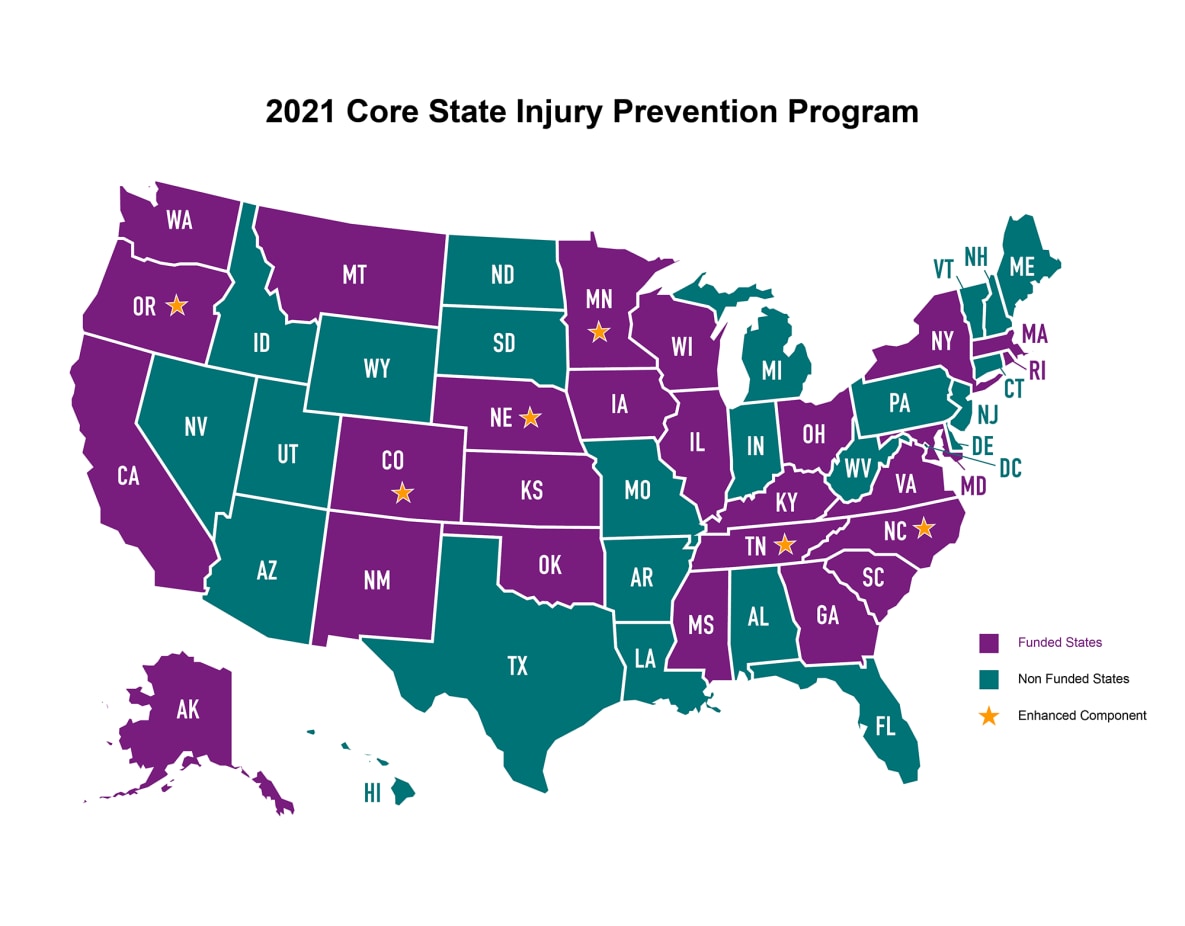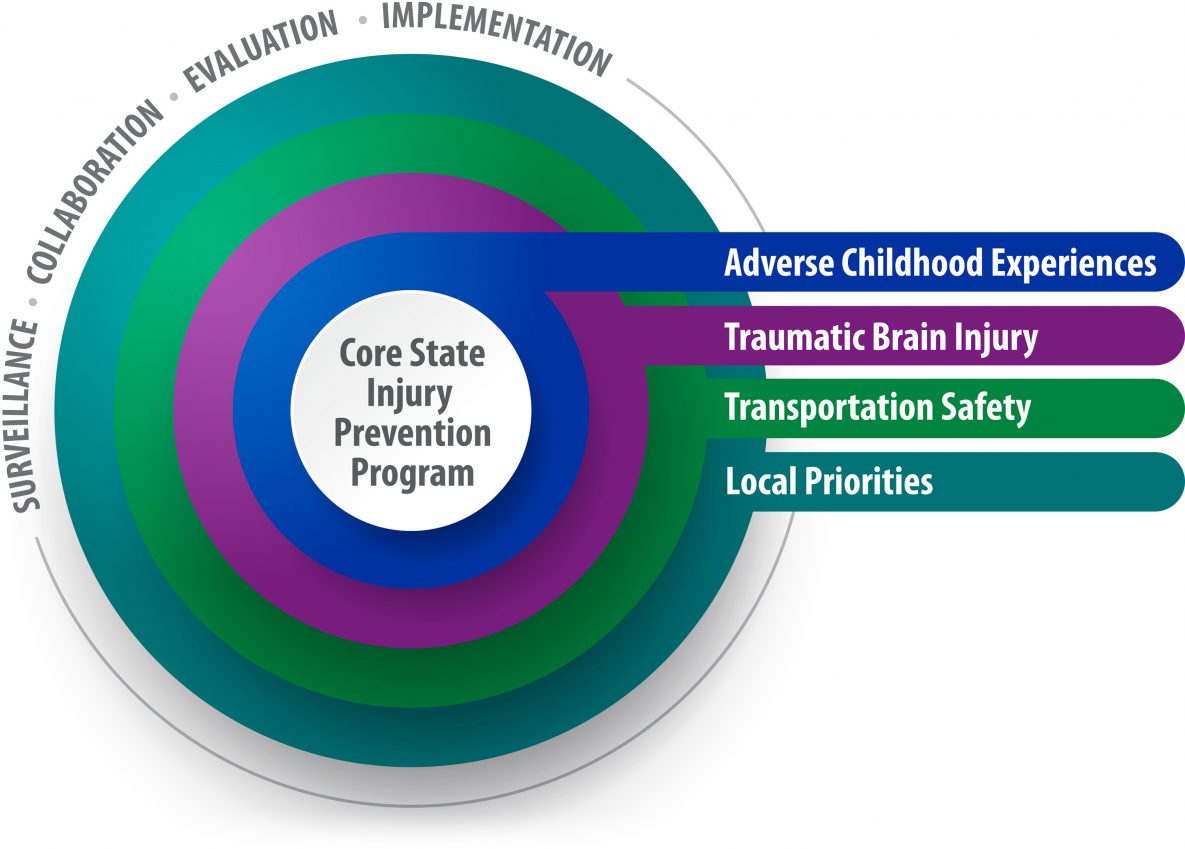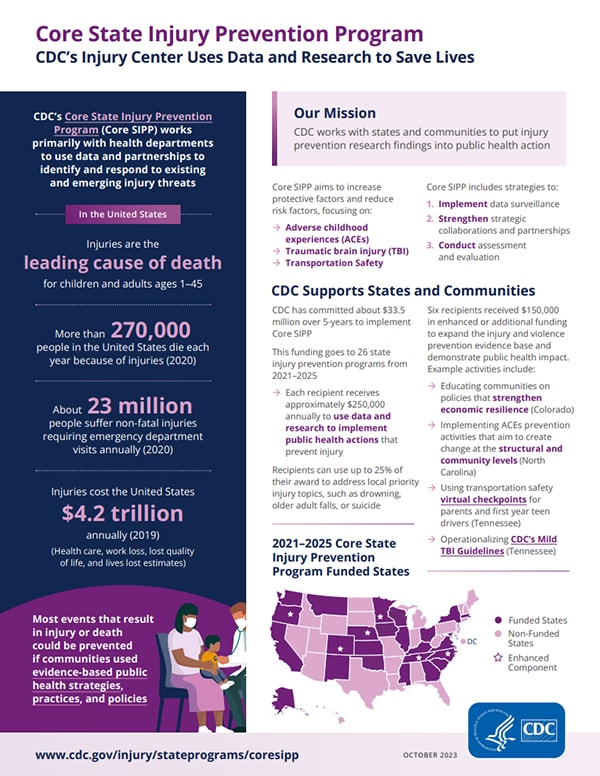Core State Injury Prevention Program (Core SIPP)
Core State Injury Prevention Program (Core SIPP)

About Core SIPP
The Core State Injury Prevention Program (Core SIPP) supports health department infrastructure, data, and partnerships to identify and respond to existing and emerging injury threats with data-driven public health actions. This support is intended to increase protective factors and reduce risk factors using the best available evidence to prevent injuries and death. The Core SIPP program includes utilizing robust data and surveillance, strengthening strategic collaborations and partnerships, and conducting assessment and evaluation.
All grant recipients will focus their strategic efforts on preventing Adverse Childhood Experiences (ACEs), traumatic brain injury (TBI), and transportation-related injury. Recipients can also use up to 25% of their award to address identified priority injury topics of local concern such as drowning, older adult falls, or suicide. An enhanced funding component is available for a smaller number of recipients to implement and evaluate prevention strategies and/or conduct novel surveillance activities. Their goal is to contribute practice-based evidence to strengthen the overall evidence base for injury prevention.
CDC is committing approximately $33.5 million to support this grant program. Click here for the Core State Injury Prevention Program Notice of Funding Opportunity. The program builds on the infrastructure established through previous iterations of Core SVIPP and Core VIPP.
Read success stories from the states who participated in the previous iteration of this program, the Core State Injury Prevention Program.

To receive email updates about this page, enter your email address:
CDC’s Core State Injury Prevention Program (Core SIPP) and Injury Control Research Centers (ICRCs) work with states and communities to put research findings into action. Core SIPP and ICRCs partnerships highlight the benefits of academic-community partnerships and address the research-to-practice and practice-to-research gap.



